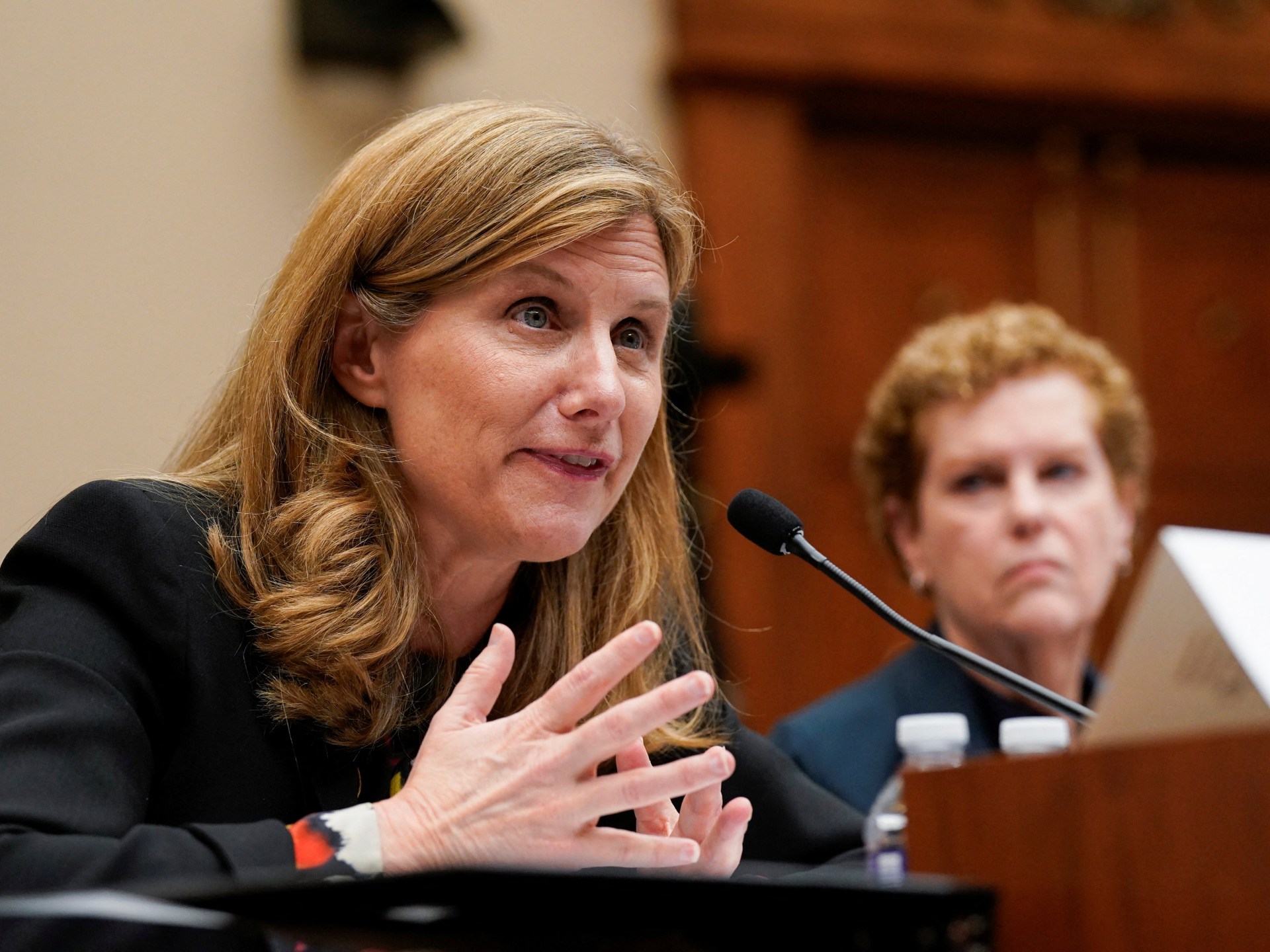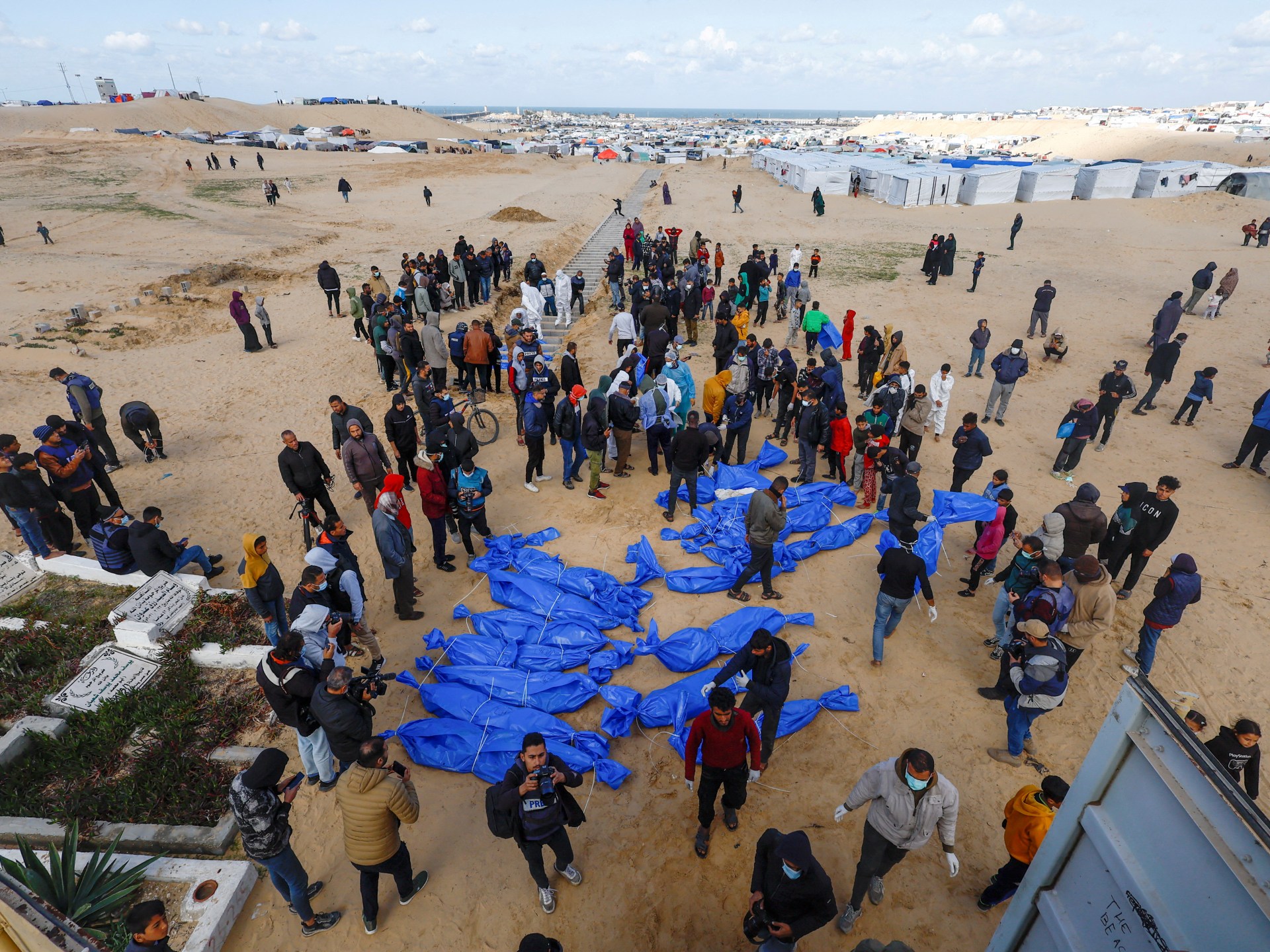As Israel seeks West Bank expansion, the controversial Homesh outpost is revived
On a recent June morning, with Israeli soldiers standing watch in the shade of a nearby tree, about 50 students prayed and argued points of the Talmud in the trailer and at tables outside. Ben-Shachar looked on approvingly.
Asked whether he will move here permanently, he responded with a smile. “I was just talking to my wife about it,” he said. “We expect the government to authorize a return of Homesh the way it was before.”
A few hundred yards below, from the Palestinian village of Burqa, Amead Dasoqi can also see the trailer. To him, it is an ominous sign: “After [the settlers] left in 2005, we had a few years of peace,” he said.
The drive to restore Homesh over American objections is being driven by far-right members of Israel’s new government, who have demanded an expansion in settlement activity in exchange for supporting Prime Minister Benjamin Netanyahu’s governing coalition. Reviving the derelict town, located between the Palestinian cities of Nablus and Jenin, would boost Israel’s presence in one of the few sections of the West Bank not already carved up by Jewish settlements — and the restrictions on Arab residents that come with them.
So far, Israel has not approved any new homes in the settlement. But Dasoqi and his neighbors have gotten a glimpse of what the future might hold, including an increase in Israeli soldiers, rolling military checkpoints and vigilante violence.
On two occasions in recent weeks, gangs of masked men ran through the village, breaking windows and burning hay bales. Soldiers didn’t intervene until Palestinians rushed out of their houses to fight back, Dasoqi said, and then shot tear gas canisters at the crowd.
“Now I am afraid to go to sleep at night,” said Dasoqi, a member of the Burqa village council, who was inspecting the damage to a torched sheep shed a day after the most recent raid. “We know they will be back.”
In a statement to The Washington Post, the Israel Defense Forces said that “soldiers are present in the area in order to prevent incidents of violence or damage to property, and are required to act to stop these events.”
Two months after Israel’s new government took office, Netanyahu transferred sweeping powers for West Bank planning and building enforcement to Finance Minister Bezalel Smotrich, a hard-line settler who recently said in a speech that “there’s no such thing as the Palestinian people.” The leader of the Religious Zionist party, Smotrich has called for Israel to double the population of Jewish Israelis in the West Bank, which is estimated to be around 500,000.
In March, the Israeli parliament narrowly voted to repeal the law that banned Israelis from entering or staying in Homesh and three other evacuated settlements in the northern West Bank for almost two decades.
Western governments swiftly condemned the move. American officials said it violated multiple agreements by Israel to curtail settlement activity and, more specifically, a 2004 written commitment to vacate Homesh and the three other small settlements given by Israeli Prime Minister Ariel Sharon to President George W. Bush.
“We are deeply troubled by the Israeli government’s order that allows its citizens to establish a permanent presence in the Homesh outpost in the northern West Bank, which according to Israeli law was illegally built on private Palestinian land,” the State Department said in a statement.
A senior Israeli official, speaking on the condition of anonymity because they were not authorized to discuss the issue publicly, denied that allowing the settlers back into Homesh violated Israeli law or the government’s agreements with Washington.
“Judea is where Jews come from and are entitled to live there,” the official said, using the biblical name for the northern West Bank. “The prime minister is completely abiding by obligations he made.”
Smotrich declined to comment for this story. But in a tweet, he celebrated the change as the first step to erasing “the disgrace” of Israel’s evicting settlers from Homesh in the first place.
The hilltop site, now a warren of overgrown foundations and crumbling stone walls, has been a hot spot since Jewish settlers first set up an outpost here in the late 1970s. Palestinian farmers from Burqa claimed ownership of much of the land and their title has been certified by multiple Israeli Supreme Court rulings over the years.
Israel finally forced the settlers out as part of a larger policy shift in 2005, when Sharon unilaterally withdrew from the Gaza Strip and pushed through a law that demolished 21 Jewish settlements, displacing thousands of Israelis.
According to diplomats, Sharon agreed to include Homesh and the three small settlements in the northern West Bank as a goodwill gesture.
“It was really more symbolic than anything, but we appreciated the symbolism,” recalled Elliot Abrams, who helped negotiate the agreement as Bush’s deputy national security adviser.
Sharon and Bush detailed the agreement in an exchange of letters, and both houses of Congress passed resolutions in support of the accord.
Abrams said it would be a mistake for Israel to build a new settlement at the Homesh site. But he rejected criticism of Israel for violating the written agreement, saying that the Obama administration had also asserted that the documents didn’t carry the legal weight of a formal treaty.
Ben-Shachar was in Homesh the day soldiers forced his sister and other residents to pack up and leave. The site has represented “an open wound” to the settlers ever since, he said. Activists have made regular pilgrimages to the location, sometimes holding Yeshiva lessons in tents or a trailer placed on land owned by a Palestinian family.
Soldiers sometimes prevented the visits, but other times turned a blind eye, according to human rights groups who have monitored the site. Now, Ben-Shachar hopes the change in the law, and the presence of the yeshiva on what the government called “state land,” will remove any ambiguity.
“We expect the government to authorize the same kind of town that was here before,” Ben-Shachar said.
Netanyahu, for his part, has tried to assure the Biden administration that there are no plans for a formal settlement at Homesh.
“We have been told at the highest levels of government that they have no intention of building anything there,” said a Western diplomat who spoke on the condition of anonymity because they were not authorized to discuss the issue publicly.
For the Palestinians who live in Homesh’s shadow, that is increasingly hard to believe.
When the settlers left, “farmers could go to their land and shepherds could be safe,” said Dasoqi, the village councilman. “Now, it is getting more dangerous. We are afraid in our own houses and there is no one to protect us.”
Check out our Latest News and Follow us at Facebook
Original Source







